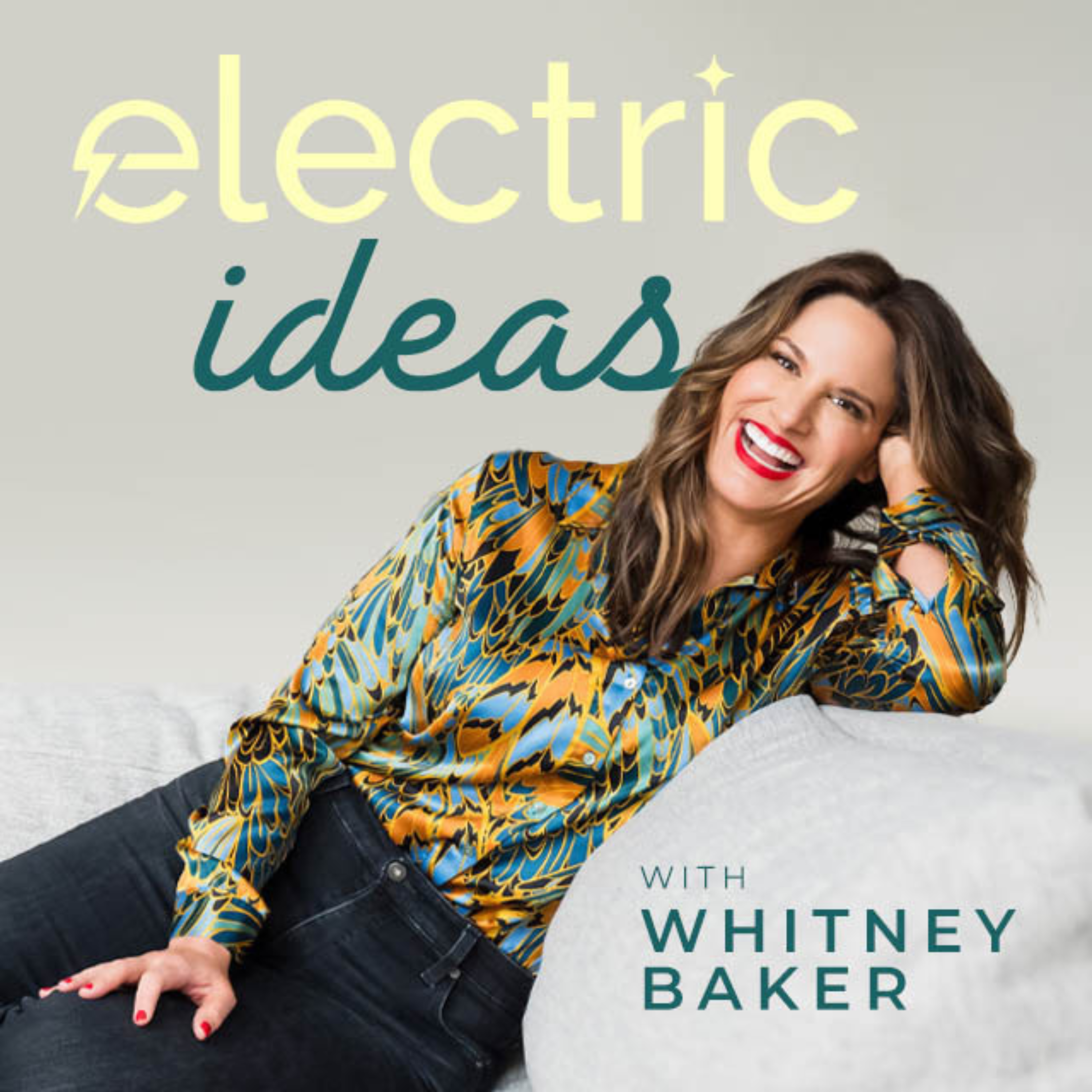
The Good Enough Mompreneur Podcast: Confidence, Mindset & Success for Mom Entrepreneurs
Are you a mompreneur struggling to balance your business growth with family life? Do you crave confidence, clarity, and success while navigating the highs and lows of entrepreneurship and motherhood?
Welcome to The Good Enough Mompreneur Podcast, where we empower ambitious, heart-centered moms to build thriving businesses without burnout!
I’m Angela Masciulli—confidence coach, Reiki practitioner, and fellow mompreneur—bringing you a powerful mix of mindset shifts, business strategies, and spiritual insights to help you step into your full potential.
What You’ll Get From This Podcast:
✅ Actionable strategies to grow a profitable business while managing motherhood
✅ Confidence-building tools to silence self-doubt and embrace your worth
✅ Real stories & interviews with successful female entrepreneurs who’ve conquered fear and found success
✅ Energy alignment & mindset work to balance business, family, and self-care
✅ Honest insights from my own mompreneur journey—because we’re all in this together!
If you’re ready to ditch perfectionism, grow your business with ease, and find more joy and freedom in your entrepreneurial journey, you’re in the right place!
🎙️ Subscribe now and join our community of inspired, empowered mompreneurs as we embrace this incredible adventure—with confidence, grace, and success! 💕
The Good Enough Mompreneur Podcast: Confidence, Mindset & Success for Mom Entrepreneurs
108. How to Get Unstuck and Overcome Your Entrepreneurial Fears with Andrea Liebross
Join us for an inspiring conversation with Andrea Liebross, certified business and life coach, and bestselling author of "She Thinks Big." Andrea shares powerful insights on overcoming fears, setting priorities, and turning your vision into reality, all while finding balance and peace in your personal life.
Key Takeaways:
- Discover the three fears that hold back many women entrepreneurs and how to overcome them.
- Learn why downgrading your goals to priorities can create more traction and success.
- Explore the difference between 'stuck stress' and 'progress stress' and how to move forward.
- Gain strategies for crafting a clear vision for your business and life and making it a reality.
- Find out how to break out of your comfort zone and think big to achieve your dreams.
Listen to This Episode If You:
- Are a mompreneur seeking to overcome fears and achieve greater success in your business.
- Want practical tips for setting priorities and achieving a better work-life balance.
- Are ready to step out of your comfort zone and think bigger about your business and life goals.
Resources Mentioned:
- Andrea Liebross's book: "She Thinks Big: The Entrepreneurial Woman’s Guide to Moving Past the Messy Middle and into the Extraordinary" or find the book at: https://www.amazon.com/dp/B0CHSC7PG8
- Andrea Liebross's website: https://www.andrealiebross.com/
- Time to Level Up Podcast: Listen Here or https://andrealiebross.com/podcast/
⭐⭐⭐⭐⭐Leave a Review on Apple podcasts or wherever you listen! 🎧
Thank you for listening and keep up the great work, mama!
The Good Enough Mompreneur Podcast Interview Andrea Liebross
[00:00:00] Welcome to the podcast, Andrea. Thank you for joining me. I am so excited to talk to you because you are a seasoned certified business and life coach, and you're an Amazon bestselling author of she thinks big the entrepreneurial woman's guide to moving past the messy middle and into the extraordinary today.
[00:00:27] Long subtitle, but hey, it's so true. We so often find ourselves in the messy middle And I love it. And thank you for joining us today. I think you're going to have a lot of wisdom to share with us. So welcome. Thanks. Thanks for having me. I'm happy to be here. Yeah. So why don't you give listeners a little bit about your background and your mission in your coaching business?
[00:00:52] Yeah. So this is how it all started. I will tell you. So I used to work for a company, a corporate, big [00:01:00] corporate entity where I was doing my official title was it was like director of business development, but I was recruiting and hiring and training new business owners. So it was, their model was like you had franchises, but you didn't.
[00:01:14] So I was recruiting these, we'll call it for lack of a better word, new franchise owners. and 99% of them were women. , I would say of that, a good 85% were moms and a lot of them were either taking, wanting to do this, number one because they wanted to get out of some other type of gig they had, like corporate gig or whatever they wanted, something that they could own themselves and man, quote unquote be more in charge of their own time.
[00:01:42] , or. They were doing it as a side hustle, it really wasn't a side hustle. Like you could, people were making multiple six figures. So I stayed there for 10 years and I was one of those people first. And then I took this role on and I stayed there for 10 years. And after 10 years, I had had [00:02:00] it and I was ready to move on.
[00:02:02] And in analyzing that, I, okay, number one, why was I ready to move on? I was ready to move on because what was going on was that Being part of that corporate under that corporate umbrella, I really was being forced to think in one way. And it was really what I would now call small thinking. We had to do things this way.
[00:02:24] We had to follow these rules. Now there's always rules, but if you had any great, what I call now, big thinking ideas of how you wanted to try something, do it differently, approach something from a different angle. You got the big no, because it wasn't, vetted. They weren't sure if that would work.
[00:02:44] So there was a big no. So when I left, I think part of the reason I left was because. I was, although I didn't label it at this point, I was really tired of thinking small because a lot of these women, most of these women had great ideas and they wanted to [00:03:00] approach things in kind of unique ways. And that wasn't being, that wasn't happening.
[00:03:05] So I was done. So I left, but when I left, okay, what's next? And. I hired my first ever coach at that point. I didn't really know what coaching was, but someone said, you need a coach. And I was like, okay, I need a coach. So I hired a coach and she said to me, why did you stay there so long? And I don't know, I think part of why I stayed there so long.
[00:03:27] Was because I felt like it fit into the mold of what I needed. I needed something flexible. I needed, I had little kids at the time. I wanted I wanted to run my own show, that kind of thing. Okay. But why did you stay when you were really doing that corporate y recruiting, hiring and training thing?
[00:03:47] And what I realized, the part I loved about it was when someone was a new business owner, they had been in it for a couple months or a year and they were profitable and things were going well, and they [00:04:00] almost were going faster than they could, than they wanted. They couldn't keep up. And they started to feel like they were in that messy middle.
[00:04:09] Like, how am I going to keep this going? A lot of times they started to feel guilty because they weren't spending enough time with their, in their brains with their families or guilty because they wanted to spend more time on their business, but they felt like. They shouldn't. So I really loved coaching them out of that messy middle and showing them all the possibilities that were in front of them.
[00:04:33] And when I first started my business, I called myself a possibilities coach because that's really what I was doing. I was really helping people see opportunity, see what they could create see how to make things go from what might seem impossible or. Too hard to my favorite phrases, simple, doable, and fun.
[00:04:54] So that was why I stayed. And that's where my, when I started my own business where that came [00:05:00] from, what it grew out of, because now I coach female entrepreneurs, I think I coach them in all stages of their business. But my sweet spot is really women who have an established profitable business.
[00:05:13] They probably have a very small team, if any, if they haven't dabbled in that yet, but they now are wanting to kick it up a notch and there's a lot of things getting in their way. Most likely the biggest thing that's getting in their way is themselves. So that's where I really love coaching. I've got a bunch of those women in my mastermind and they are wanting to hit seven figures.
[00:05:40] Some already have. They're in a wide variety of industries. And 99 percent of them have kids. So navigating both life and business, which is what we talk about a lot, is really is really the meat of what goes on. So that was probably a really long answer to your very short question. No, I [00:06:00] love that.
[00:06:00] And, I think that coaches serve such an important role, especially when you're transitioning from that corporate environment, from that small thinking to holding that space for possibility, because so many, we can't even imagine that, in the environment you're, you've just been so limited for so long.
[00:06:24] Yes. So I think that's so important. I think it's important that people know coaches like that exist and people like that exist. I was having a conversation this morning. I was talking to a client or a prospective client this morning. Now she is going to be a client, but a prospective client.
[00:06:41] And She's never worked with a coach before. And I said, listen why do you want to engage in this? What about, she's I need more accountability. She'd been, she had her business for seven years, but she's still a solo printer. And she's I need more accountability. And. I said, totally.
[00:06:58] I said, but here I want you to think about [00:07:00] these other things that you're these intangibles yes, we want to increase her revenue. Yes. We probably want her to hire some team members, but really what this is going to do also is hold space for you to think about some things because in the driving people to ballet and picking up someone else who's sick at school.
[00:07:21] We don't really have that. We don't create that space for ourselves. So I think that's one of the most amazing things. And the other piece. That I think is amazing and a person said this to me on Friday. I did a big live event on Friday, which was super fun around my book. It's called she thinks big live, but one woman said to me, she's a while back I've been working with her for a while back, you told me that you believed in me.
[00:07:46] more than I believed in myself. And that really stuck with me. And I had to borrow that belief for a very long time in order to keep myself going and get to this [00:08:00] next level. So I think someone holding belief for you, someone holding space for you, someone holding you accountable, those are all Amazing benefits that you're not going to get from your family, even though you might love your family or even just a mentor.
[00:08:14] Mentors aren't necessarily pushing you that you get in these coaching relationships. So tell us what are some of the fears and I think you identify three main ones that hold us back as female entrepreneurs in particular from growing from taking that leap or. Yeah, potential.
[00:08:33] Yeah. And this woman this morning was a perfect example. First off, it's fear of the unknown. Oh, yeah. Okay. We're all wired for that, by the way. Yeah. So we don't know what's, actually probably they all kind of fall under this, but Fear of the unknown. We don't know what's going to happen tomorrow.
[00:08:53] Let's be honest. We don't even know what's gonna happen tonight, but somehow that fear in a [00:09:00] business setting holds us back because we start asking all of these what if questions and usually the what if questions. They end with, what if something goes wrong? What if I don't succeed? What if no one buys from me?
[00:09:17] Okay. So they're usually not the kind of what if questions that are, what if this actually works? What if I have, I can't keep up with the demand? We don't go there. Our brain wants to go into its protective mode, which it should. That's its job. Our brain's job actually is to protect us as a matter of fact.
[00:09:38] So it's doing its job, but it's it's holding us back while it's doing its job. So fear of the unknown and that desire to. Stay, I'll call it safe to stay in the known that's a big, huge fear. And it it also goes into fear of [00:10:00] change, right? So what if this works and I can't pick up someone at four 30 from ballet, what's going to happen?
[00:10:07] Are they going to not take ballet? No, they're going to go to ballet and you're going to figure it out. Okay. That's what's going to happen. That is what's going to happen. Okay. There's fear of risk too, because you're probably having to put more time in money. So all these things are unknown, but I want you to give equal airtime to the fear of success, which is also an unknown, but it could happen.
[00:10:30] Okay. And I love that. You don't talk about that enough because one of the biggest fears that pops up, like Nobody anticipates it because you start a business to be successful, why do we follow up? Where does that go? What happens? Yeah. So it's a confidence issue in a sense.
[00:10:49] Like you lose your confidence. You're not sure if you're going to have the wherewithal to handle things no matter what, whether it works or it doesn't work. Okay. So that's fear of the [00:11:00] unknown. That's the first big category. And I think the second big category, and I talk about this in the book and she thinks big and I really elaborate on it.
[00:11:08] So if you want more info go to Amazon, get, she thinks big, but second is fear of failure. Okay. So that could also be like under fear of the unknown, but I want you to think of it as its own thing, fear of failure, because really it's just another kind of confidence issue. Okay. But this one revolves around judgment.
[00:11:28] Okay. Or feelings like bad feelings. So we have this fear that we're not going to be good enough. We have a fear of not being seen as good enough. Who cares if we are or we aren't, but not being seen as good enough. And then we have this fear of letting other people down. Okay. So all of those things are really failure like things.
[00:11:57] Our brain is reading them as failure. And our, [00:12:00] but our brain really should be reading them as, I just need some more confidence. So I like to say. This one can be solved by quieting the little voice in the back of your head that I call a frenemy voice and saying, Hey, thank you so much for reminding me that I may not really know exactly what I'm doing.
[00:12:20] And thank you so much for reminding me that someone might think what is either who am I to do it? Or they may think, Wow. Look at you like the kind of make fun of you. All those things. So that's just really quieting the frenemy voice. . And that's a big thing. So I work a lot with clients on confidence and I always say, you wouldn't have gotten on this consult call if you didn't have some confidence.
[00:12:47] Yeah. Because, so you've got confidence. But we're gonna talk about a different kind of confidence, which is saying, thanks so much for the warning back there in the back of my head. I'm gonna, I'm, will the real Andrea please stand up? Will the real Angela please stand up? [00:13:00] She's going to do what she wants to do.
[00:13:01] So that's fear of failure. And the other piece, that fear of letting others down. There's this unwritten rule that we need to be there for our families and manage our home. And yes, I'm all in on being there for your family. So this woman this morning, if she's listening to this, she kept saying to me, yeah, but my kids come first.
[00:13:24] And I said, yeah, you know what? My kids come first too. And they're now 22 and 20, but they still come first. And. I've been able to grow a very profitable and successful business. So why does it have to be one or the other, right? What if your kids are like, mom, go for it, right? What if they're going to be fine, whether they're in a carpool, are you picking them up?
[00:13:47] You're not neglecting them for like forever and ever, right? So this letting people down thing mostly revolves around our family, but that's also under fear of failure. That's the second [00:14:00] category. Okay. Third category, fear of lack. So this revolves around not having enough of something, not having enough money, not having enough time.
[00:14:13] Those are really the two big ones, money and time resources in general. But I like to say our foremost valuable resources are time, money, brain power, and relationships. So ironically, no one worries about having enough brain power. But that is really, if you could invest in your brain power, in your thinking and thinking about things different ways, you are going to have plenty of money.
[00:14:42] You're going to figure out how to make money. You're also going to have plenty of time because you're going to figure out what do I need to be doing and what I can delegate. So that fear of lack is really something that can a hundred percent be managed just by [00:15:00] working on our own mindset and thinking.
[00:15:02] Okay. So fear of lack, fear, failure, and feeler fear of the unknown. Those are the three big categories. Yeah. So do you have any tips for how we can begin to change that narrative? Yeah, I do. Imagine that. I know you've come to the right place. So to really just be, to simplify it. Okay. Like you really need to think big.
[00:15:30] You need to think bigger. So what does that really mean? So what that really means is the following, sorry, I'm going to cough. Okay. You need to go become friends with your, the, your future you. Okay. So future you is a year from now or three years from now, five years from now who has her act together, recognizes that they're like, yeah, we can be being [00:16:00] scared as like a human reaction.
[00:16:02] And you're willing to take some risks. Future you is someone who is successful, who has done all the things. Thanks. Who wrote the book or grew the business or quit the corporate job or carpooled to ballet instead of driving 24 seven. So that's the future. You have to go talk to that future you and say, what would you do today?
[00:16:27] What should I do today? Because that future you, she knows, she has the past you, which we love to talk about past you. We love to tell all the stories of what's happened in the past. That's just a teacher, but it's not a fortune teller. And present you, don't ask present you, because present you is tired and overwhelmed and probably a little stressed.
[00:16:51] So I wouldn't ask present you. Wouldn't ask. Nope. Leave that out of the equation. You need to go to future you and ask her what to [00:17:00] do today, how to move past this. And that's really an element of thinking big. Thinking big also means, and I created an acronym around this, TRUST. T R U S T. You need to T, consider all your thought options.
[00:17:15] What, that's, a thought option would be, what if this actually works? Like this could work is a thought option that we don't really look at too often. Okay. We look at the one and what if it doesn't work? All right. So consider your thought options. That's what the T stands for. R is real problem.
[00:17:34] Chances are the real problem is It's just the fact that you don't want to feel a negative feeling. So if I go back to why I started this business and those women who are, the outside world would think of being super successful inside, they were feeling a lot of anxiety. They were feeling frustration and you don't want to feel those things.
[00:17:57] So you're like, maybe I should just jump ship. [00:18:00] Okay. So the real problem is really just a negative feeling. Definitely with those three fears, a hundred percent. That's what R stands for in trust. You stands for embrace the unknown. Okay. So we don't know what's going to happen tomorrow. We don't know what's going to happen in three years and that's okay.
[00:18:21] That's okay. That's one of my favorite phrases and that's okay. S is secure support. Big thinkers, they secure support. They find usually other humans to help them through some of these challenges, right? They help. They find other humans to help them increase their brain power or give them more thought options or show them what's possible.
[00:18:50] So securing support is not telling me that your husband is super supportive because he probably is, but he's doing his version of support, [00:19:00] which is 100 percent different than most other kinds of support, including mine, right? He's not going to necessarily point out what could be going wrong in a way that is constructive.
[00:19:13] Necessarily, or in his job is not to do that. He's supposed to like, love you. So let's just let him do that job. I can do it. Else do the other job. Good points. Good point. Let's let him do his job. So that's secure support. And then T does stand for take action. Sad part is here. We do have to do something and we have to take what I call massive action versus passive action.
[00:19:39] Massive action is. You would, you could tell me you're doing things like you're reading books, you're listening to podcasts, both of which I'm love, right? Obviously you took a training. On YouTube. Okay. Those are all awesome things, but it's really passive action. They're like in the background.
[00:19:58] They're not super [00:20:00] hard. You gotta do some hard things. A little sign over there on my desk. It says I can do hard things. So massive action is hard. Massive action is making an offer. Massive action is raising your prices. Massive action is deciding you're gonna write a book and put yourself out there.
[00:20:15] Massive action is, here's another one that might get some of your listeners massive action, is creating a business plan and putting it on paper and writing it down and looking at it more than once a year. That's massive action. And that's super hard to do by yourself, just so you know. So a lot of times you need to secure support in order to do that.
[00:20:37] At least I do. I, every time I sit down to do it, I'm like this is a, probably a really good time to clean out my inbox. Cause it's hard. It's hard to work. Yeah. So that taking action, the T the last T in trust is taking action. That's how you move past this. Yeah, I really love, I think you're the first person I've heard talk about different types of action.
[00:20:58] And I think that's [00:21:00] really good distinguisher because we can do lots of things to make ourselves busy and not really move the needle. Exactly. That's an easy trap to fall into. Yep. A lot of a lot of knowledge gathering. I call it like passive action, even Googling. That's passive action, right?
[00:21:19] Or even like I said to someone yesterday she wanted to set up a meeting with someone. She said just let me know when, if if you want to do this or when's a good time. And I said, what do you think is going to happen with that? She's I'm not going to hear from her for another month.
[00:21:34] I said, yeah, why didn't you just say, Hey, can, is next Tuesday at 10 good? Or how about Thursday at 11, because someone's going to pick a time if you, but that's massive action versus just waiting to see what happens. Yeah, so I think that those are awesome points for somebody who is trying to overcome their fears [00:22:00] and, trying to rewrite that narrative in their head.
[00:22:05] But what about that person who is trying to create the vision that they want to? Yes, this is hard. Yes, it's hard. So the creating the vision or almost dreaming bigger is super hard. And it's a skill, right? It's a skill. I like to guide people through creating the vision in two different ways.
[00:22:26] Number one is super guided and saying, okay, let's just create a fuzzy picture on the wall for 10 years from now. It's like a Renaissance picture. We're not talking modern art with crisp, clear lines. What's the big, a fuzzy picture. What's it going to look like? It's easy to say, oh, my kids are going to be this old.
[00:22:44] Okay, great. What, where are you living? How much are you working? Do you still even own this business? Do you if you do, how much, what are you doing in it? What's your role? Are you still doing everything? Are you doing nothing? Maybe you've got a whole team. So we create this [00:23:00] fuzzy picture vision for 10 years from now.
[00:23:02] Then we go to three years and then it gets a little clear. And I get, I need some specifics. Okay. So that's one way that I do it. When I'm doing a business plan I call it a vision to action plan. So we have one page of this is all about vision. The second page is all about action.
[00:23:19] So we tie the vision to the actions. . Another way though, to do this is to dream. And dreaming. If you think about it, dreaming is nonsensical. Dreaming is, I have no clue how this is gonna happen. Think about Martin Luther King. I have a dream when he said all that, that none of that was going on right now.
[00:23:41] Sometime I would say, I'm not saying we're a hundred percent there, but we're a lot better, right? Some of that's coming true. So dreams also are euphoric and they're exciting and they should light you up. There should be like some igniting in there. So I like to say, if you can use, if you can create some wild goals or [00:24:00] wild dreams or a wild vision W stands for.
[00:24:03] Being willing to suck at it. Okay. I stands for ignite and impossible. L stands for let it be easy. All right. And then D stands for do it for fun. So if you can use that acronym to help fuel a dream, like what would be fun? What would be thrilling, what would be like letting it be easy, like allowing yourself open to the fact that it could be easy.
[00:24:30] That's like another giving equal airtime kind of thing. Oh, yeah. Then you can start to start to dream. Pipe dreams, like people have pipe dreams, but back in the 1800s, like people were smoking opium through pipes. And they were hallucinating and probably having a great time. That, those opium pipe dreams just shortened to pipe dreams and that's what a pipe dream is.
[00:24:52] So you're capable of doing it. You just have to allow yourself the space, talk about space, and environment [00:25:00] to do it in. So definitely it's so important to have that person that can help you see further than you need. And so it sounds like you have lots of ways that you do that for your clients. And if you want any mompreneur aspiring or growing on mompreneur listening to this podcast to take away a few ideas or an idea what would that be? I would say, okay, two things. Number one is being a mompreneur can be lonely. Okay. So I just, I have a podcast called time to level up and one of the most recent ones is about loneliness.
[00:25:46] It can be lonely or it will be lonely if it's not. And you need to secure that support. Yeah. And again, it's probably not your husband's is probably not your sister. It's [00:26:00] got to be someone that's outside the peanut butter jar. I like to say like you're stuck in your own peanut butter jar and you can't like it's really jiffy.
[00:26:08] It gets like super thick. You can't get out and you can't really see what's going on around you and what's what the options are. So you need someone to read the label. We need someone to see what else is on the shelf. No. Yes. So you've got to secure support. Number one, number two, thinking big is the key, my friends, like you are just going to stay where you are, whatever that is.
[00:26:30] And it might not be bad, but if you want something to change, you've got to think bigger. That'll be the second thing. And then the third thing is one of my favorite sayings is being an entrepreneur is really a journey in personal development disguised as an entrepreneurial adventure. Okay. So your business is only going to grow as fast as you grow as a human in your thinking as fast as you evolve, as fast as you expose [00:27:00] yourself to new ideas where the thought options come in.
[00:27:03] So any of this, any things that you can do to better yourself. Are gonna pay off in the end, and that's what's gonna propel you forward a hundred percent. Back that up. That's so true. Yeah. Yeah. It's, it is definitely a journey that will take you, you can't hide from the skeletons.
[00:27:23] You, and all they cannot hide from the skeleton. They'll show themselves. For sure. They will. They totally will. Yeah. Where can listeners find, think big and connect with you to learn more about what you do and all the good stuff? Yeah. You can go to my website and you could spell out my whole last name, but I'm just going to tell you to go to andreas with an S links with an s.
[00:27:45] com and there you're going to find a link to the website. You're also going to find a link to all my social media. I usually hang out more on Instagram and I'm trying to hang out more on LinkedIn. I don't know. It's rough. I would highly encourage you since you're listening to this podcast, you must like [00:28:00] podcasts.
[00:28:00] So go download time to level up. That is my podcast. And you can head over to Amazon or actually any bookstore and find she thinks big, but if you go to the website and you click there, you're also going to get like a personalized book plate and some other goodies. So I love it. Yeah, so much for sharing, that we're recording this in January, but, I think entrepreneurs need to be at the point where we're always constantly reevaluating where we're at and where we want to go.
[00:28:35] And that's that's a really good tip there. It's you have to keep evaluating it. If you made some great plan for 2024, we got to look at it already again, cause they might've changed and that's okay. And that's okay. Yeah. Don't feel like you're stuck in whatever plan you made or what you thought you would, should do or where you would be.
[00:28:55] Yep. The beauty of being an entrepreneur is that we can change it all. We can. [00:29:00] It's all, it's like a, it's a, you've got options. Right all the time. Yes. Thank you, Andrea, so much for being on the podcast and I will leave links to everything you mentioned in your podcast down below for sure. Thanks for having me, Angela.
[00:29:15] Thank you, Andrea.
Podcasts we love
Check out these other fine podcasts recommended by us, not an algorithm.

Living the Reiki Life
Kristi & Amanda
Awakening to Abundance
Abundance with Athena
Angry At The Right Things
Bronwyn Schweigerdt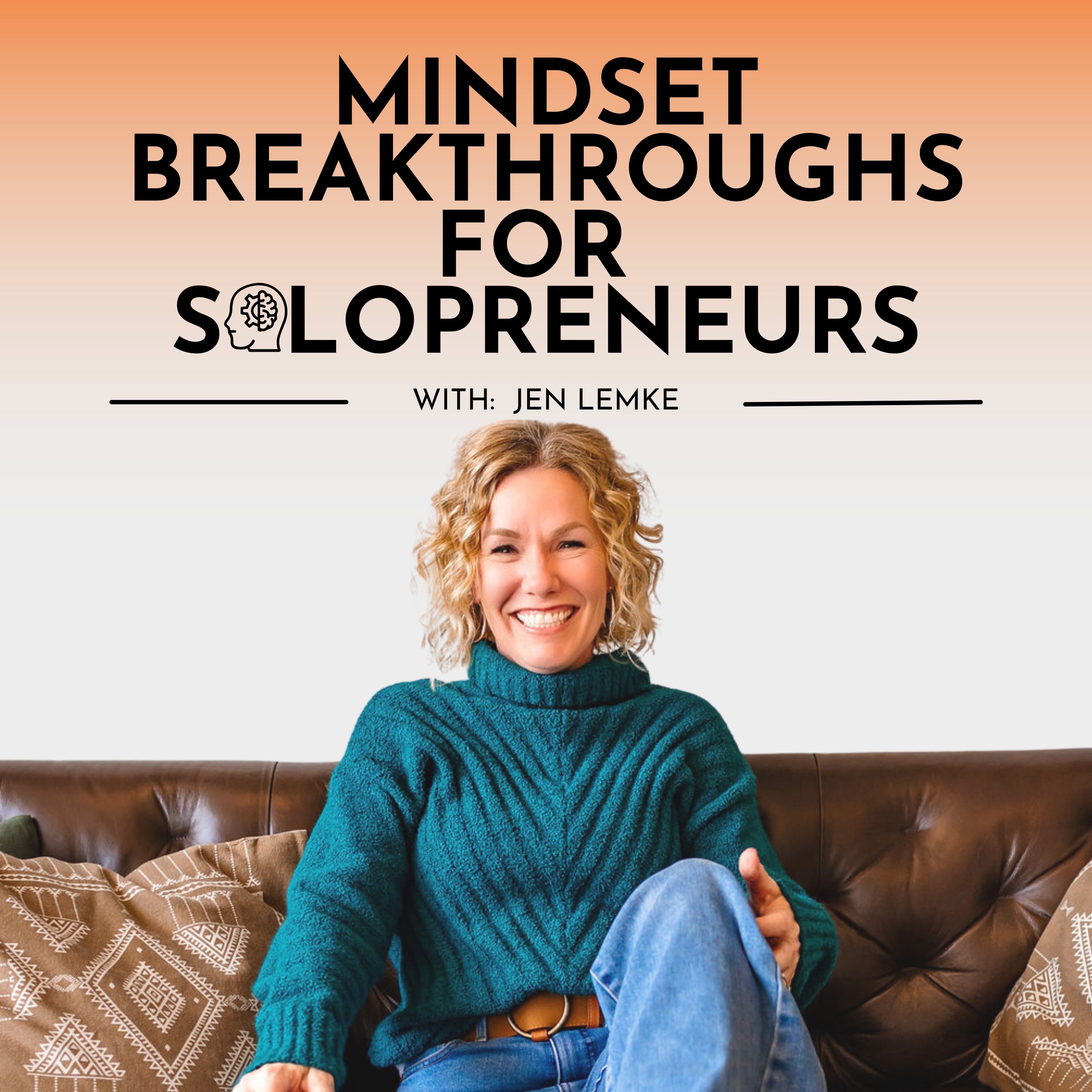
Mindset Breakthroughs for Solopreneurs
Jen Lemke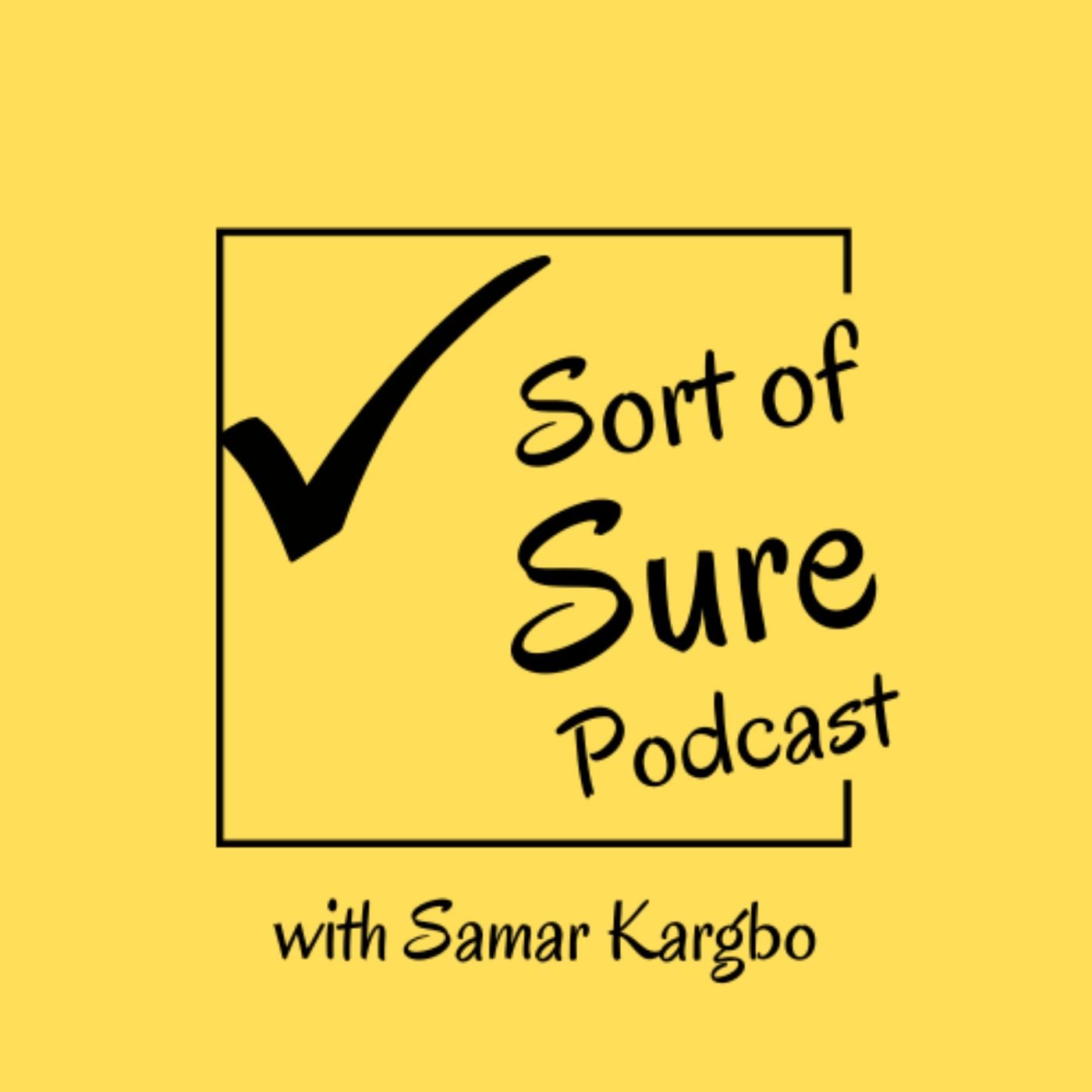
Sort of Sure Podcast
Samar Kargbo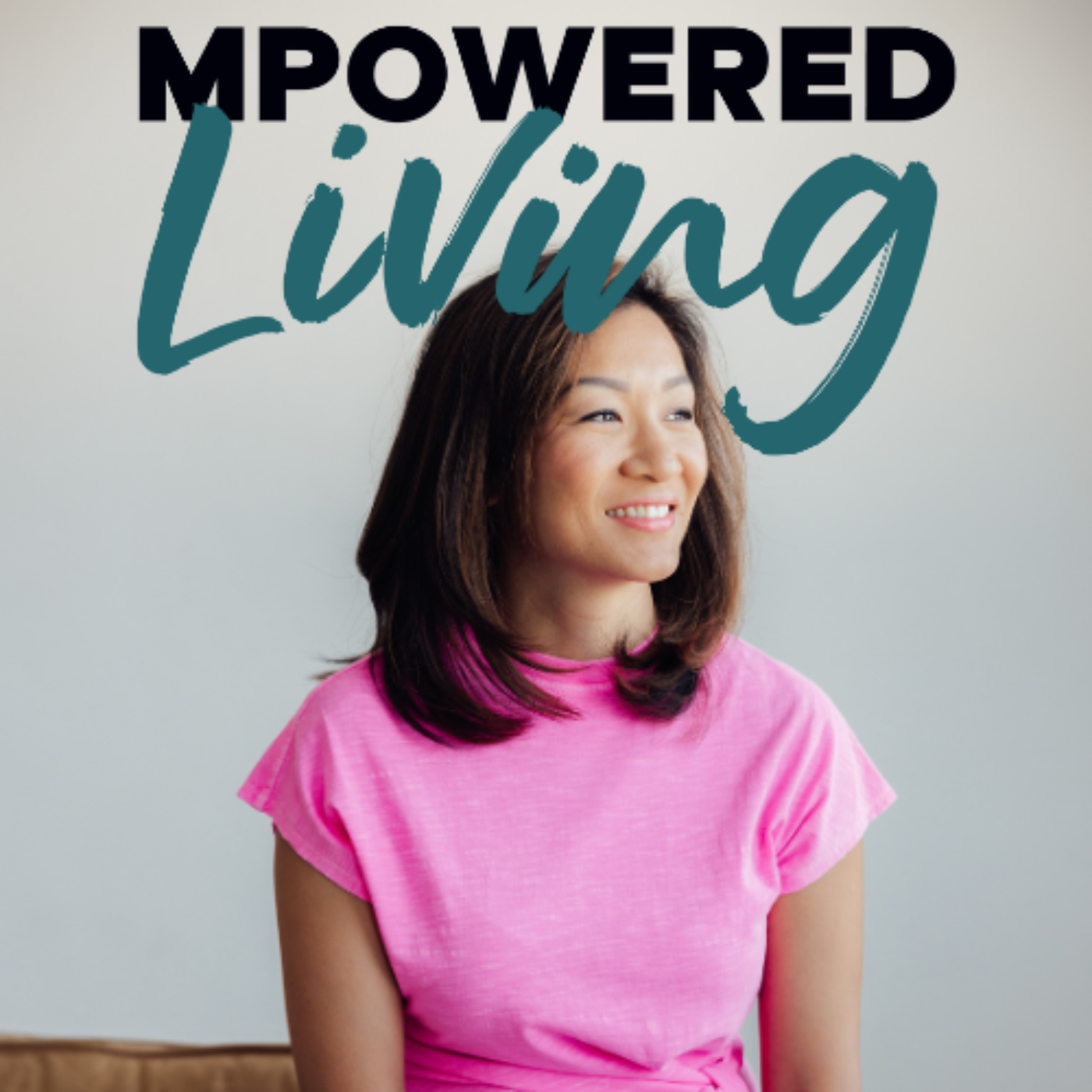
Mpowered Living with Ann Sheu
Ann Sheu
Mending Families
Melissa Pemberton
Rebel Energy
Jade Elsberry
The Mending Trauma Podcast
Dr. Amy Hoyt & Leina Hoyt, MA
Life in Focus with Sandy Grigsby: Personal Branding, High Performance, Confidence, Self Worth, Entrepreneurship
Sandy Grigsby | Brio Five, LLC | www.briofive.com | www.sandyinfocus.com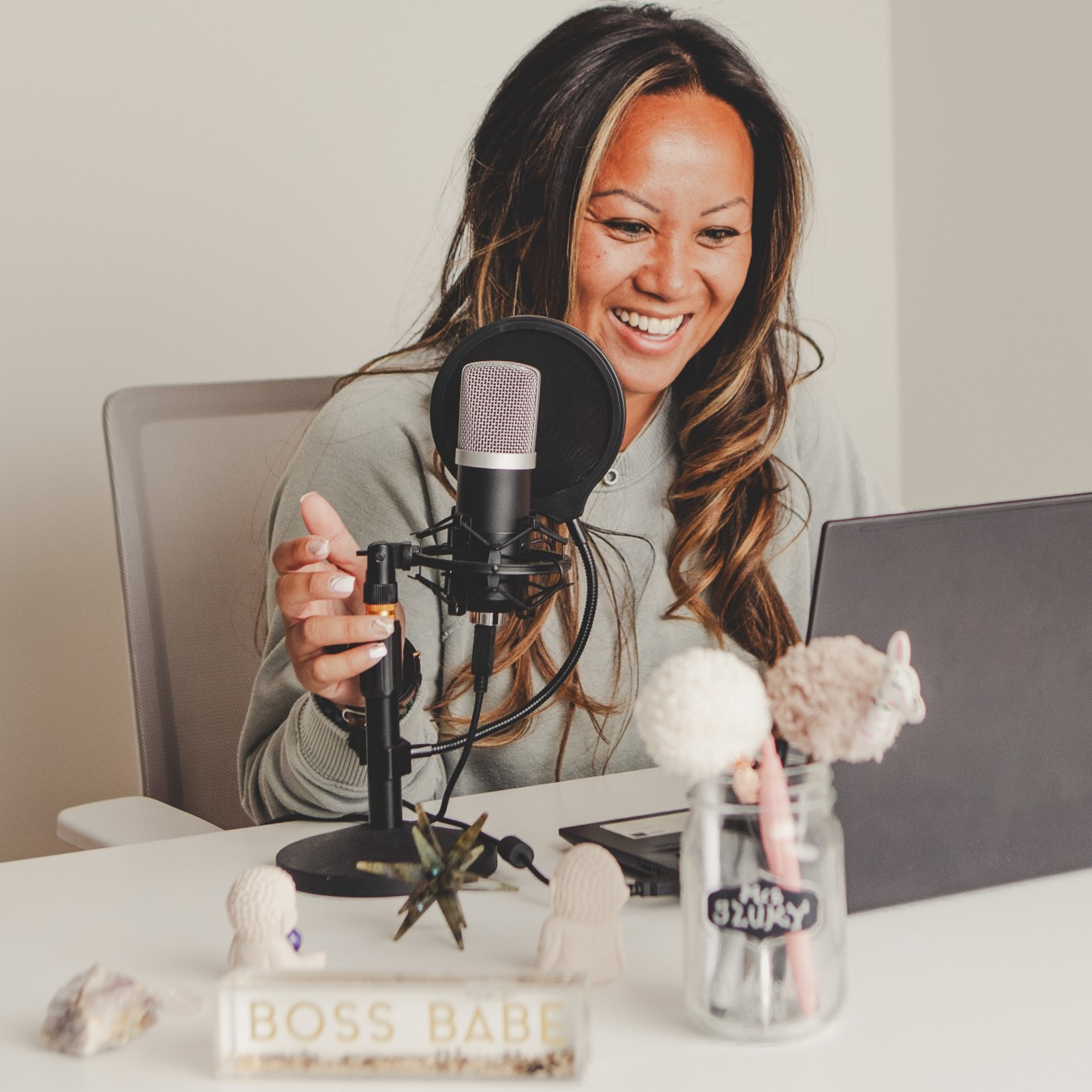
The Carol Szuky Podcast
Carol Szuky
Project: Mom Podcast
Emily Gorrie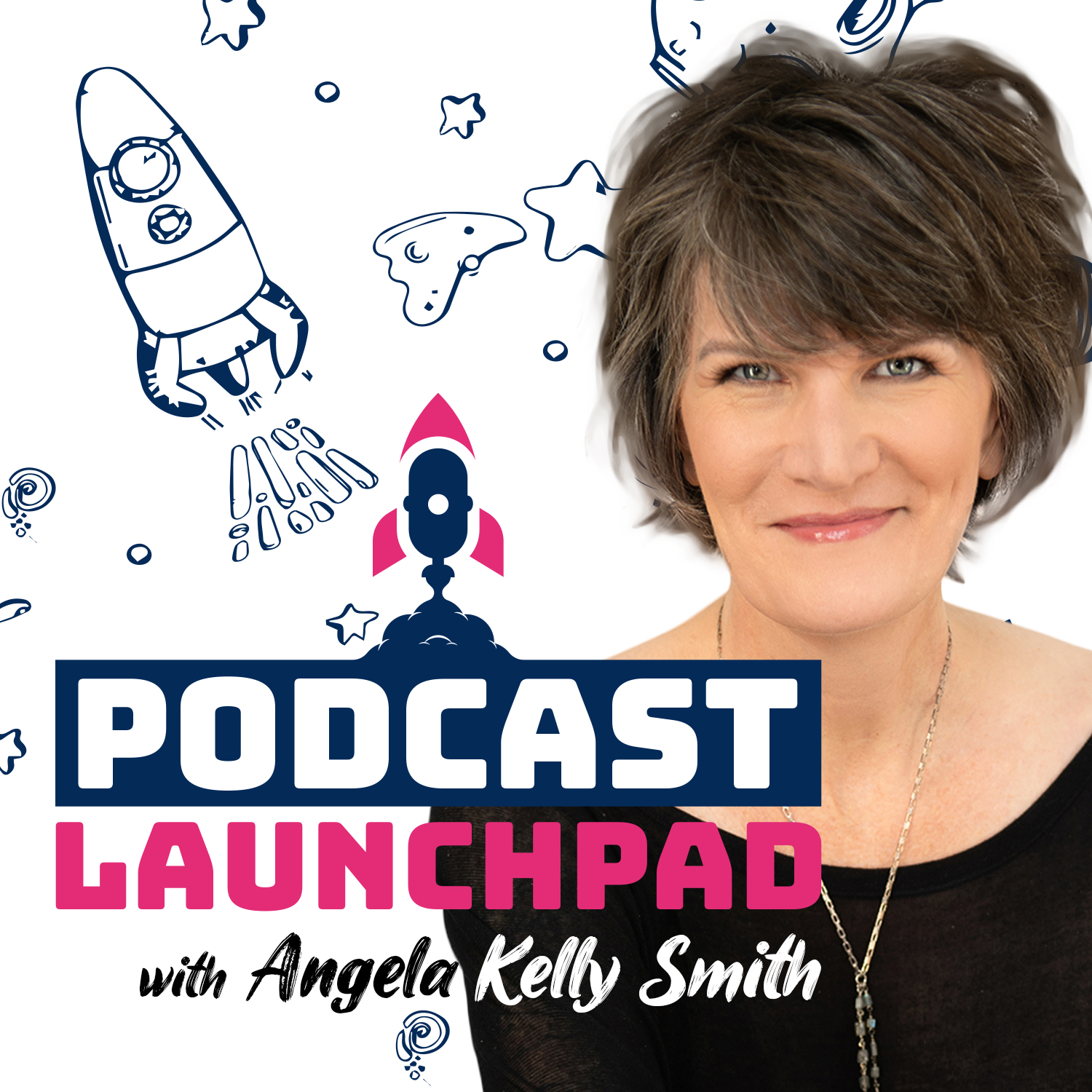
Podcast Launchpad with Angela Kelly Smith
Angela Kelly Smith
The Rainmaker Family Show | Build Your Family Business
Chelsey & Stephen Diaz
Quantum Mindset with Gail Allen
Gail Keyes-Allen


